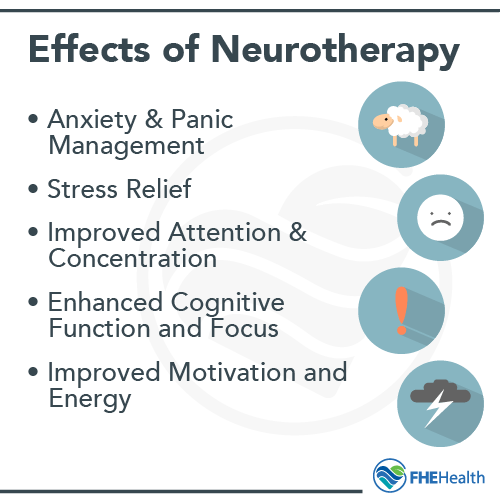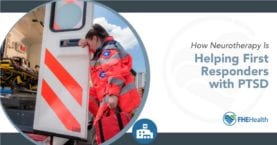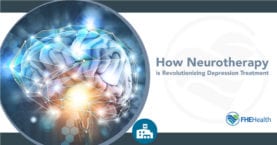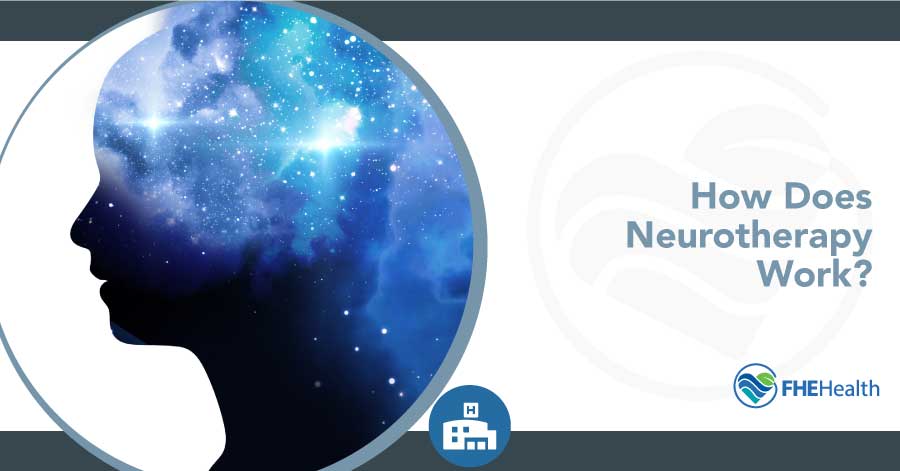
Painless and non-invasive, neurotherapy is an innovative treatment approach that helps people make changes in their brainwave activity in order to modify certain behaviors and reduce impulsivity. In order to change brain states, participants must first gauge their brainwave activity. During the process of neurotherapy, therapists use state-of-the-art diagnostic tools to determine brainwave activity in order to target patterns that may be modified for desired outcomes. Neurotherapy is not a miracle cure, by any means; however, it has provided many individuals with a means for making positive change.
The Exciting Promises of Neurotherapy
Technology has helped the medical industry improve healthcare outcomes with extraordinary success. Neurotherapy relies on technology to read brain activity. Medical researchers have noted that people with certain conditions such as depression, anxiety, ADD/ADHD, and substance addiction demonstrate unusual brainwave patterns. These brain waves are not immune to change. Individuals with various mental health conditions can learn how to make lasting changes to these unhealthful patterns.
Success rates of neurotherapy are promising. This is because the therapy, in large part, is based on learning. Consequently, participants are able to build on their knowledge well beyond therapy sessions. According to researchers, neurotherapy has the potential to improve brain performance. These improvements can lead to exciting applications that include:
- Anxiety and panic management
- Stress relief
- Improved attention and concentration
- Enhanced cognitive function and focus
- Improved motivation and energy
As a therapy that’s linked to learning, neurotherapy promises enduring change. Another benefit: no negative side effects. In fact, many people who have experienced upwards of 20-30 neurotherapy sessions have reported no negative side effects. On the contrary, they report decreased stress levels, greater calm and relaxation and reduced symptoms related to their mental health conditions.
Neurotherapy Explained
There are different types of neurotherapy. FHE Health specializes in evidence-based therapies that are associated with the best outcomes. Neurotherapy is essentially based on the idea that the thoughts, feelings, and actions we take are based, to some and possibly a large extent, on physiological functioning. Take a condition like substance addiction, for instance. The powerfully addictive substances that a person takes can alter brain chemistry. Substance addiction reflects this altered state.
During the neurotherapy process, therapists help clients learn how to change their brainwave activity and, in doing so, change thought patterns and, ultimately, behaviors. During sessions, therapists help clients practice maintaining their learned brainwave states. They may practice changed behaviors in work or school-related tasks. In the case of substance addiction, they may practice managing cravings and other triggers that led them to abuse drugs or alcohol.
How Do the Different Types of Neurotherapy Work?
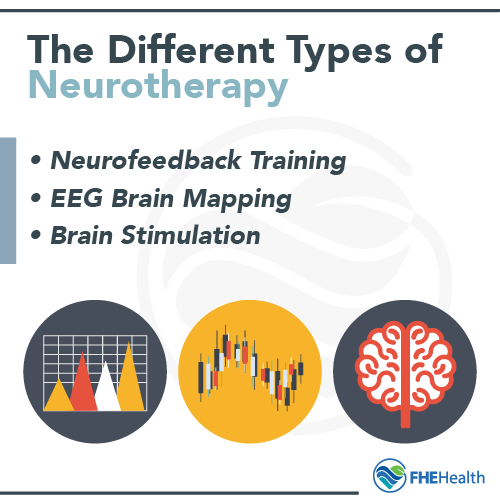
- Neurofeedback Training: Neurofeedback is an ideal treatment for people suffering from conditions like substance use disorders, depression, suicidal thoughts, rage disorders, and even insomnia. During neurofeedback training, the practitioner employs Quantitative Electroencephalography to see a real-time display of brain activity. Clients can literally see their brainwave activity. During sessions, therapists help clients self-regulate brain activity to achieve positive results.
- Electroencephalogram (EEG) Brain Mapping: EEG brain mapping is a powerful tool used for neurotherapy. As mentioned, drug and alcohol abuse can alter the brain’s chemistry. Often these substances negatively impact emotional processing, memory, decision making, and other important cognitive functions. In some cases, these detrimental changes may be temporary while in other cases they are permanent. However, with EEG brain mapping, clients can view their brain wave activity in order to measure the effects of substances as well as the effects of therapy.
- Brain Stimulation Therapy: Each day, our minds are bombarded with sights, smells, feelings, thoughts, and other stimuli. This stimuli can be viewed as electrical energy— and we can see it using EEG brain mapping. Unfortunately, substances like drugs and alcohol disrupt the normal processing of stimuli. In some cases, the substances cause a reduction in neurotransmitters in the brain. Other substances may cause neurotransmitters to flood the brain. The result is that the brain experiences neural degeneration. With stimulation therapy, therapists can encourage the brain to repair its neural processes. The result may be a reduction in anxiety symptoms, cravings, or attention problems.
Does Neurotherapy Work?
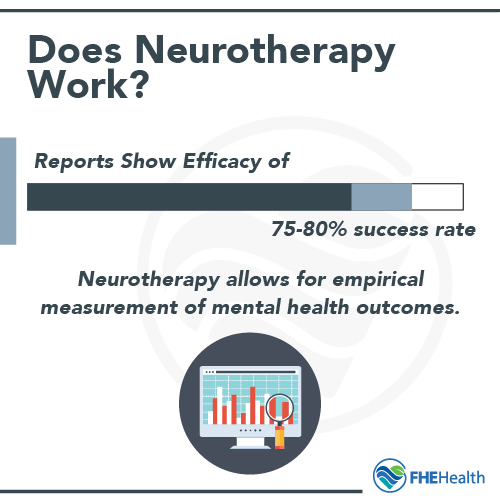
These measurements are not a panacea. Instead, they’re a tool that both therapists and clients can use to enhance and inform the recovery process. People suffering from conditions like depression, anxiety, and substance addiction have experienced benefits that are long-lasting.
At FHE Health, our therapists rely on various forms of technology and equipment to measure brainwave activity. These treatments, again, are non-invasive. We perform them in our outpatient NeuroRehab. Some of the technology/equipment we use includes:
- Heart rate monitors
- Biosound monitoring
- Quantitative Electroencephalography
- Computerized cognitive brain training platforms
- High-frequency pulsed, electromagnetic stimulation
How Can Interested Individuals Get Neurotherapy?
The medical technology used in neurotherapy requires skilled medical technicians. Clients should beware of home-based neurotherapy products that rely on small electrical currents or manipulated magnetic waves to achieve an effect. Often, these do-it-yourself forms of brain stimulation make clients experience a feeling of sea-sickness.
In a medical setting such as FHE Health, medical practitioners rely on advanced technology and equipment and have the training required to operate it. Moreover, this technology is a tool that forms part of an overall treatment protocol that’s tailored to each individual’s unique needs. Brain stimulation without the accompanying therapy doesn’t work. At FHE Health, practitioners use technology in accordance with best medical practices.
When entering FHE Health’s Neurorehab program, clients can expect to meet with clinicians who will evaluate their condition and make treatment recommendations based on each individual’s needs— and physiological reports including brain wave activity. Early assessments provide a baseline of sorts, helping both clinicians and clients measure improvements over the course of treatments and therapy. While some individuals experience immediate positive results, others may require multiple treatments before noting any change. What’s clear is that neurofeedback therapy can play a powerful role in an individual’s overall treatment plan. People suffering from various mental health conditions can benefit from this type of therapy. Visit FHE Health to learn more.
